Navigating the process of securing a DSCR loan for your investment properties in Illinois can be straightforward with the right information.
This article demystifies how to get a DSCR loan in Illinois, focusing on the vital steps to qualify, from leveraging your property’s income to fulfilling down payment and credit criteria.
Ready to propel your real estate investments forward? Let’s dive in.
Key Takeaways
- DSCR loans in Illinois are designed to meet the needs of real estate investors, focusing on the income potential of investment properties rather than the personal financial situation of the borrower, with loan amounts that can reach up to $5 million.
- Eligibility for DSCR loans in the state hinges on certain criteria, such as a minimum credit score of 660, a required down payment of at least 20%, and a debt service coverage ratio (DSCR) that ideally exceeds 1.25, taking into account the income generated by the property.
- Investors can apply for DSCR loans in Illinois by comparing lenders, gathering financial documents related to the property, and aligning with set eligibility criteria, with refinancing options available for those seeking better terms on an existing loan.
Understanding DSCR Loans in Illinois
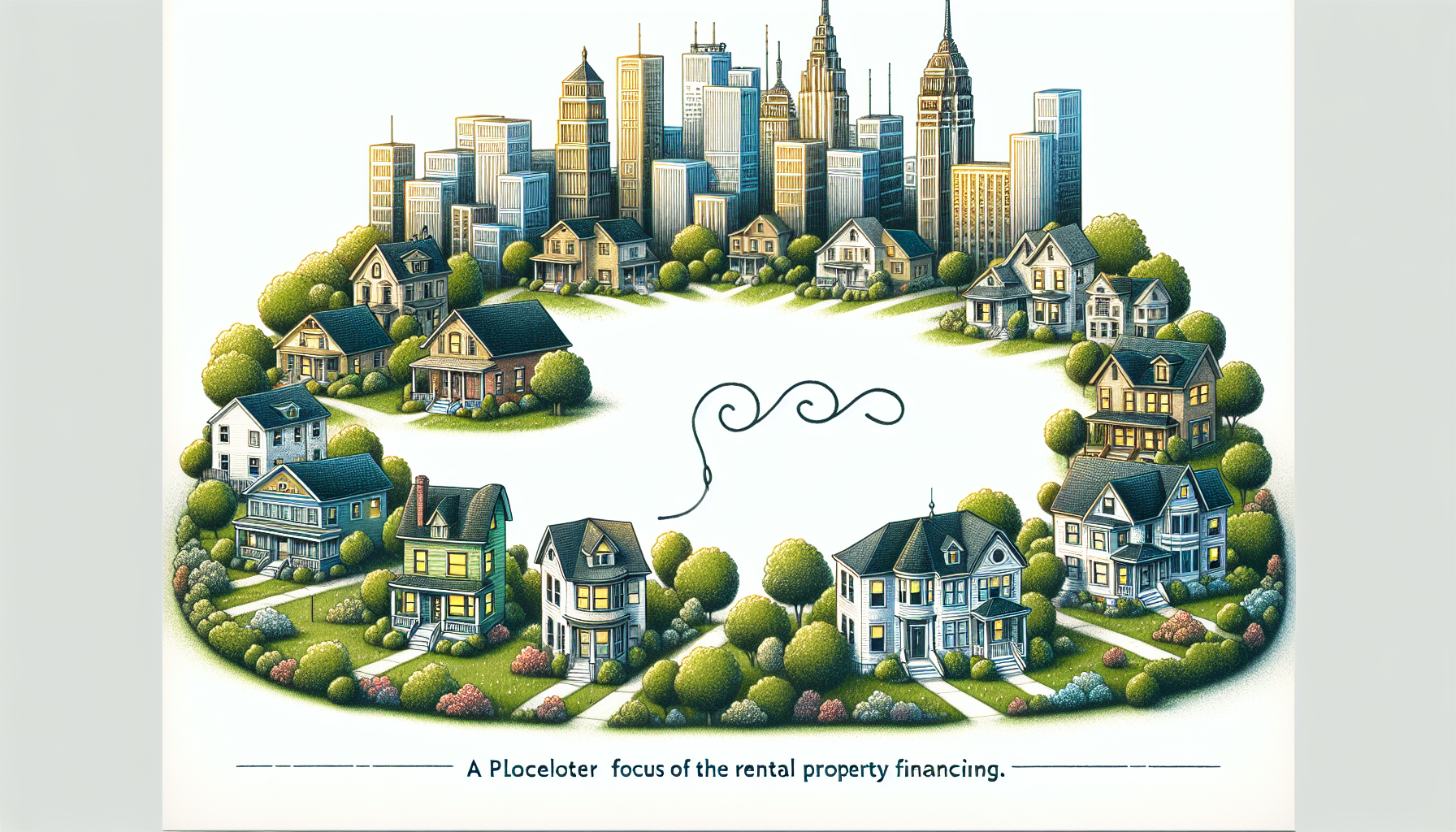
Picture this: you’re eyeing a promising rental property in Illinois, but traditional mortgage requirements seem overwhelming. Enter DSCR loans, your beacon of hope. With options ranging from a 30-year fixed-rate to interest-only loans, these specialized mortgages are crafted for investors like you, focusing on the income potential of the property rather than your personal financial situation.
Imagine financing large-scale ventures with loan amounts reaching up to $5,000,000, tailored to a diverse array of rental properties, from long-term residential rentals to short-term vacation homes listed on platforms like Airbnb and VRBO. The best part? Eligibility is assessed based on the rental income and cash flow your investment generates, not your personal income, setting a unique stage for rental property investors’ financial growth.
Rental Property Financing
In the realm of real estate investments, DSCR loans in Illinois are a game-changer. They enable you to finance multiple properties simultaneously, unbound by the number of investments under your belt. A significant down payment of at least 20% is your ticket in, but once aboard, the possibilities are vast, encompassing single-family residences to multifamily units, even certain rural properties.
Compare this with traditional loans, where your personal financial history is scrutinized, or hard money loans that might come with higher interest rates and shorter terms. DSCR loans offer a balance, leveraging the property’s ability to generate income, which could lead to more attractive loan amounts and terms.
Debt Service Coverage Ratio
The cornerstone of DSCR loans is, unsurprisingly, the Debt Service Coverage Ratio (DSCR) itself. It’s a simple yet potent calculation: divide your property’s annual gross rental income by its annual debt obligations – including the mortgage, taxes, insurance, and any HOA fees. A ratio above 1.25 is the sweet spot, signaling to lenders that your investment is not only self-sustainable but also profitable, potentially unlocking more favorable loan terms for you.
Understanding how the DSCR is calculated and managed is pivotal. It’s a measure of your investment’s financial health, providing a clear picture to lenders and a roadmap for you to maximize returns. Keep this ratio robust, and the landscape of lending opportunities widens before your eyes.
Eligibility Criteria for Illinois DSCR Loans
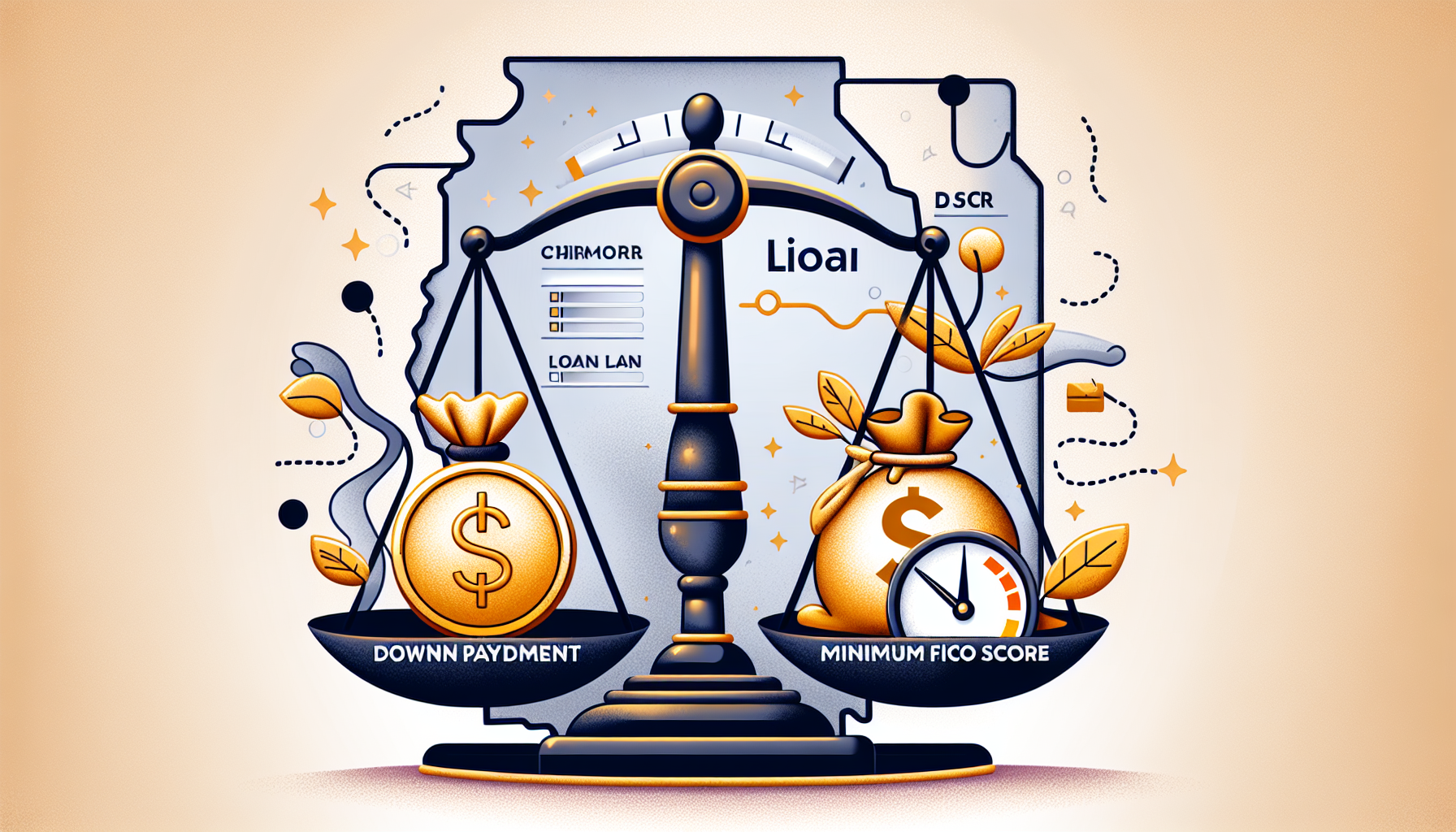
To step into the world of Illinois DSCR loans, there are gates you must first unlock. The loans are designed for amounts between $150,000 and $3,000,000, ensuring a wide berth for both modest and ambitious projects. The loan-to-value ratio climbs up to 80%, meaning your minimum stake in the game is a 20% down payment.
Creditworthiness is also a key player, with a minimum FICO score of 660 to get your foot in the door. But, rest assured, tax returns and income verification are not part of this application scene, making DSCR loans a beacon for real estate investors with diverse financial backgrounds.
Credit Score
Your credit score is akin to a financial fingerprint in the eyes of lenders. For a DSCR loan in Illinois, 660 is the magic number, but exceeding this can swing the doors to more lucrative loan terms wide open, including lower interest rates and substantial loan amounts. It’s a reflection of your financial responsibility and, by extension, your reliability as a borrower – a perspective shared by lenders like Griffin Funding, whose average borrower boasts a credit score of 732.
This score, paired with a minimum 20% down payment, forms the foundation of your DSCR loan eligibility. Together, they are the bedrock upon which investors build their dreams of property portfolios that span the breadth of Illinois’s diverse real estate landscape.
Down Payment
Imagine the down payment as your investment’s anchor, securing your purchase and demonstrating your commitment. In Illinois, DSCR loans call for a 20% down payment, a show of faith in your property’s potential to generate income and cover the mortgage. This requirement aligns with the loan-to-value ratio of 80%, ensuring you have a significant stake in your investment’s success.
Some lenders may extend a hand to seasoned investors, offering a reduced down payment as a nod to their proven track record. It’s a perk that acknowledges your experience and the trust you’ve earned, potentially easing your entry into subsequent investments.
Property Type and Location
The type and location of your investment property are pivotal factors in the DSCR loan equation. Residential properties, particularly those with 1-4 units, are prime candidates for this type of financing in Illinois. However, it’s wise to note that rural properties might not always make the cut due to stringent federal definitions and population data.
The real estate markets of cities like Chicago, Naperville, and Aurora are fertile grounds for DSCR loans, thanks to their appealing rental income potential and robust property values. Each location offers its unique blend of community amenities, affordability, and growth potential, making them attractive to investors wielding the power of DSCR loans.
How to Apply for a DSCR Loan in Illinois

Applying for a DSCR loan in Illinois is a journey marked by strategic steps. It’s a path that diverges from traditional lending, focusing instead on the income-producing prowess of your rental property. With options for ratios as low as 0.75, the process begins online, taking you through a unique verification process that hinges on the property’s financial performance rather than your personal income.
To navigate this journey, you must align with the set criteria, including the down payment, credit score, and DSCR ratio thresholds. With each requirement met, you edge closer to unlocking the financing that could elevate your real estate investments to new heights.
Research and Compare Lenders
Embarking on the quest for the right DSCR lender in Illinois is akin to seeking the ideal partner for your investment ventures. It’s crucial to compare the offerings, delving into the fine print of down payments, credit score requirements, and DSCR ratio thresholds. The quest may lead you to alternative options like interest-only loans, asset-based loans, or bank statement loans, each presenting unique advantages to suit your investment profile.
Lenders such as Griffin Funding stand out with their:
- No-limits approach on the number of properties
- Lofty loan amounts up to $5 million
- Serving diverse investors including the self-employed and those recovering from credit events
As you compare, consider the tailored security solution they offer, including security service, ensuring they align with your long-term investment goals.
Gather Necessary Documents
As you approach the application process, it’s imperative to arm yourself with the necessary documents. Bank statements spanning two months, showing sufficient liquid assets to cover up to six months of property-related expenses, are a must. If the property is already tenanted, signed leases that clearly outline the terms and rent amounts will be required, a testament to the income it generates.
For those applying under an LLC or similar entity, additional documentation like the Certificate of Formation and Operating Agreement become part of the application arsenal. Remember, in the world of DSCR loans, it’s the income and cash flow of the rental property that take center stage, not your personal earnings.
Submit Application and Await Approval
Once your documents are in order, the application for a DSCR loan in Illinois can be submitted online, a process that ushers you into consultation with loan specialists. These experts are your navigators, helping you understand the intricacies of your financial situation and the qualifications required for your investment to flourish.
During this final stage, lenders will weigh your DSCR ratio and verified income, tailoring the terms of the loan to the strengths of your rental property. It’s a personalized approach that ensures your investment is poised for success from the outset.
Interest Rates and Loan Terms
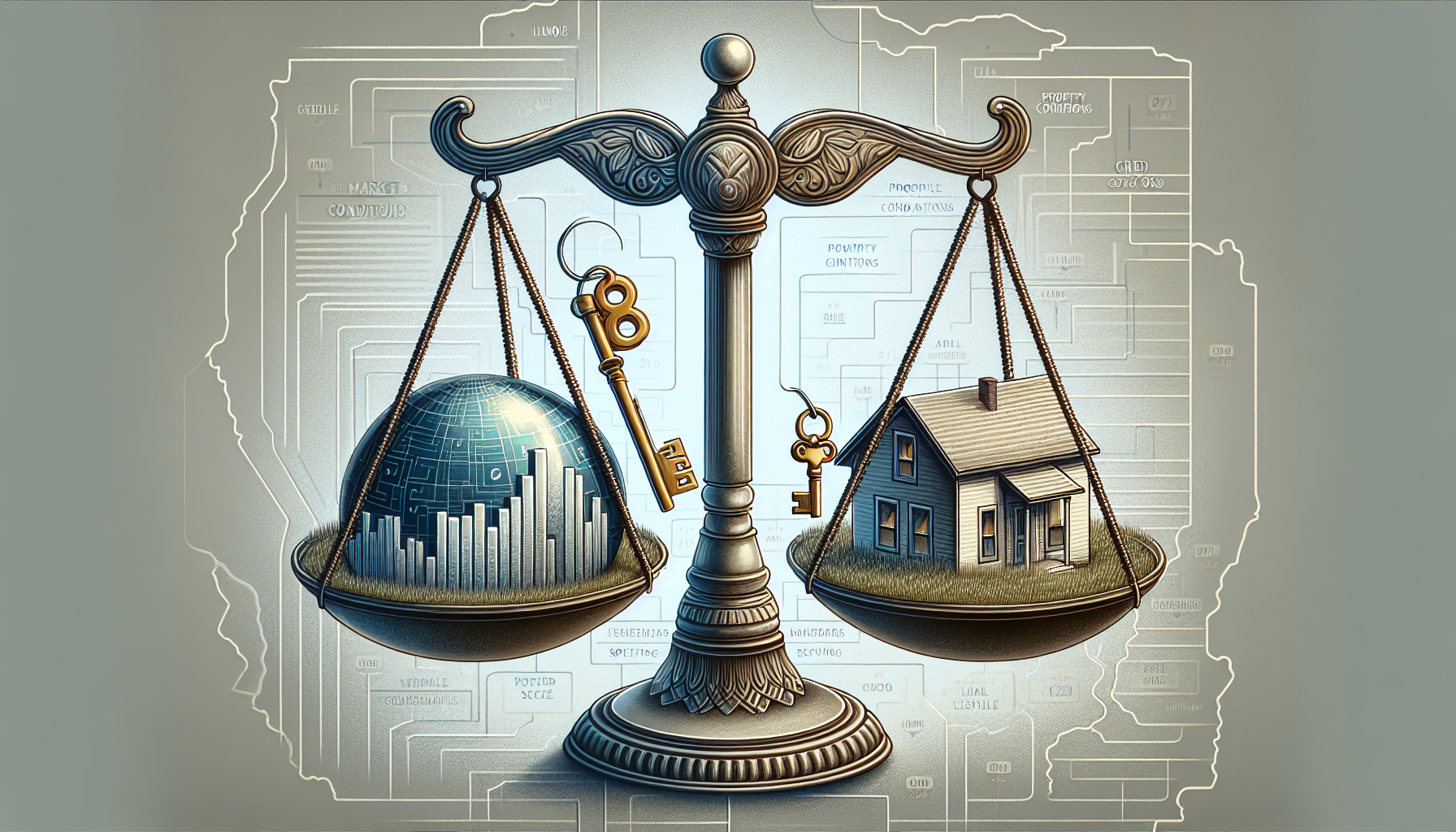
The financial essence of DSCR loans in Illinois lies in their interest rates and terms. Beginning at a baseline of 7.5%, these rates set the tempo for your investment’s long-term rhythm. In early 2024, the average interest rate for long-term rental loans hovered around 8.29%, a figure that underscores the importance of understanding these financial facets.
Navigating the world of DSCR loan interest rates and terms is essential for any investor looking to make an informed decision. It’s about striking a balance between the cost of borrowing and the potential returns on your rental property investment.
Factors Affecting Interest Rates
The interest rates for DSCR loans in Illinois are dynamic, influenced by a mosaic of factors. Some of the key factors that affect the interest rates include:
- Your FICO score and credit history
- The specifics of the investment property
- Your experience in real estate investing
- Local market conditions
- The current repo rate
These factors all play a role in determining the rates you’re offered, making it a complex interplay of variables, similar to how a cloudflare ray id found can be a result of multiple factors.
Opting for interest-only payments initially can lower your mortgage payment outgoings, focusing on interest rather than principal. Conversely, agreeing to a prepayment penalty might lower your interest rate, locking you into the loan for a predetermined period.
Understanding Loan Terms
The loan terms of DSCR loans in Illinois are as varied as the properties they finance, with amounts typically ranging from $150,000 to a staggering $3,000,000. Among the most popular is the 30-year fixed-rate mortgage, though adjustable-rate and interest-only options are also within reach for borrowers.
With no state-mandated minimum DSCR, investors find a degree of flexibility in structuring their loans. Griffin Funding, for example, tolerates ratios as low as 0.75, while the average borrower rests comfortably at a DSCR of 1.05.
Maximizing the Benefits of DSCR Loans
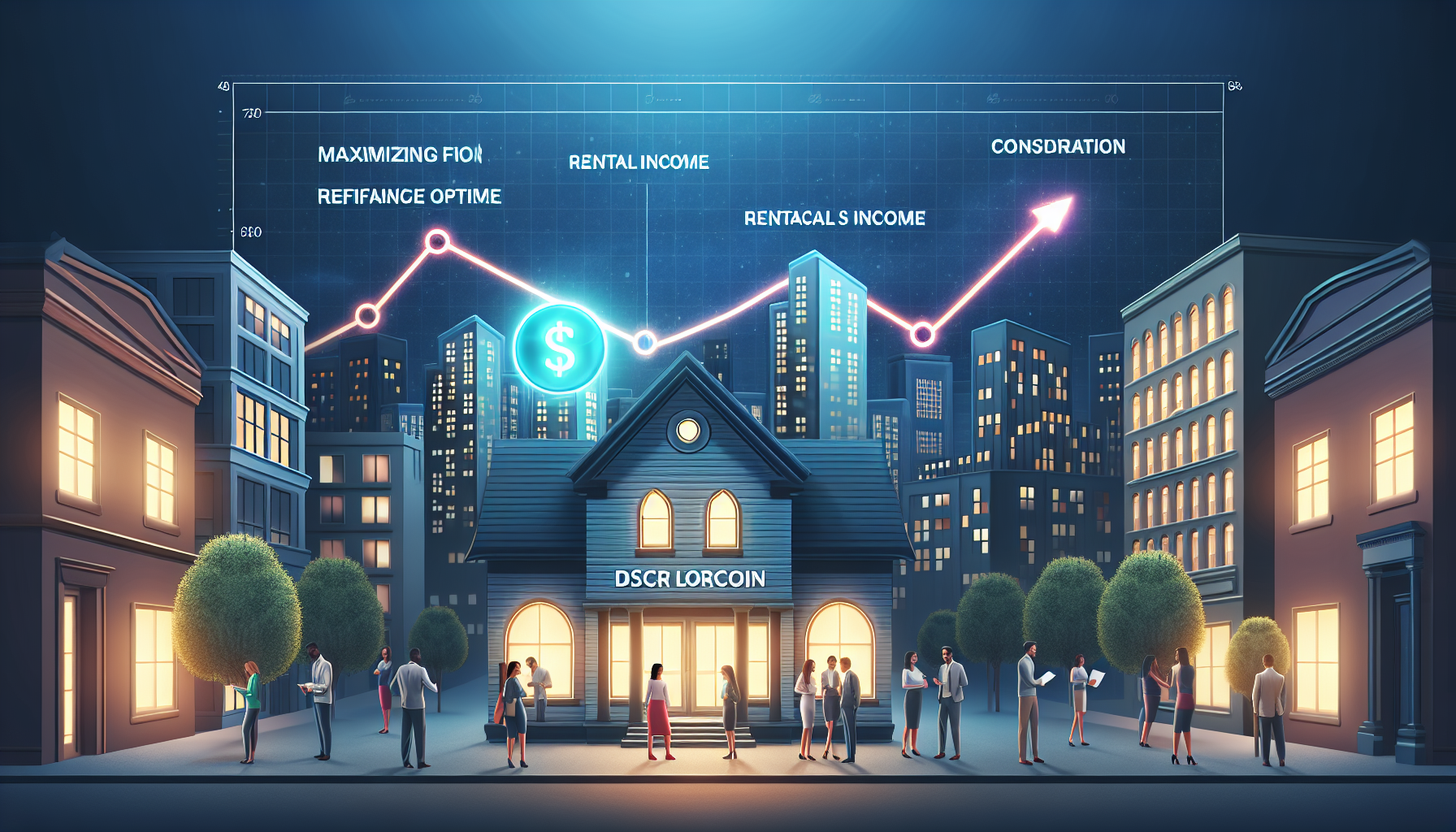
To truly harness the potential of a DSCR loan, an investor must be adept at maximizing rental income. It’s a critical factor that directly influences the debt service coverage ratio, potentially leading to more favorable loan terms. Renovating properties to increase their value, aligning rental prices with market trends, and managing properties efficiently to ensure tenant satisfaction are all strategies that contribute to this goal.
Selecting the right investment properties in Illinois is also crucial. They should be assets with strong potential for appreciation and consistent rental income, which significantly amplify the benefits derived from a DSCR loan.
Leveraging Rental Income
By strategically leveraging rental income, an investor can improve their debt service coverage ratio, a vital component that lenders consider when determining loan terms. Enhancing property occupancy and rental income not only fortifies your financial position but can also lead to improved loan conditions, making it a key strategy for investors.
Refinancing Options
Refinancing a DSCR loan in Illinois can be a gateway to better financial terms, especially for investors with a strong DSCR ratio above the desired threshold. Whether to secure lower interest rates or more favorable loan terms, refinancing can be a strategic move for those with long-term investment horizons.
For cash-out refinancing, it’s important to note that the maximum loan-to-value ratio is set at 75% in Illinois, while it goes up to 80% for rate and term refinancing. This difference can be crucial in deciding which refinancing path to take.
Top DSCR Lenders in Illinois
Navigating the prairie state’s landscape for the best DSCR lenders is a quest in itself. In Illinois, lenders like OfferMarket and Griffin Funding have risen to the occasion, offering competitive, low-cost financing options tailored to the needs of Illinois real estate investors. OfferMarket prides itself on ensuring optimal terms for borrowers, including minimal rates and fees, underlining their commitment to being a long-term financial ally.
Griffin Funding, with their expansive reach across Illinois including the bustling Greater Chicagoland and the historic city of Joliet, offers a broad geographic door to their lending services. They cater to investors from various backgrounds, whether you’re a seasoned professional or a newcomer to the real estate scene.
Summary
As we wrap up this guide, it’s clear that DSCR loans in Illinois offer a unique avenue for real estate investors to finance their rental properties. By emphasizing the income potential of the investment over personal financial details, these loans provide flexibility and opportunity to fund a range of investment projects. Remember, eligibility hinges on factors like credit score, down payment, and property specifics, while the application process is streamlined and distinct from traditional loan scenarios.
Embrace the journey of maximizing your investment with a DSCR loan – from leveraging rental income to exploring refinancing options. With the right lender by your side, the Illinois real estate market awaits your mark. Let the knowledge you’ve gained here inspire you to make informed decisions and propel your investment portfolio to new heights.
Frequently Asked Questions
What is the minimum credit score required for a DSCR loan in Illinois?
To qualify for a DSCR loan in Illinois, a minimum credit score of 660 is generally required, and higher scores may result in more favorable loan terms.
Can I finance multiple rental properties with a DSCR loan in Illinois?
Yes, you can finance multiple rental properties with a DSCR loan in Illinois without limitations on the number of properties you can purchase.
What types of properties are eligible for DSCR loans in Illinois?
In Illinois, residential properties with 1-4 units are generally eligible for DSCR loans, with potential exclusions for some rural properties.
How is the debt service coverage ratio (DSCR) calculated?
The debt service coverage ratio (DSCR is calculated by dividing the property’s annual gross rental income by its annual debt obligations, which include principal, interest, taxes, insurance, and any homeowners association (HOA) fees. This means with the right adjustments, you can improve the DSCR.
Are there any specific areas in Illinois where DSCR loans are particularly advantageous for investment properties?
Yes, cities such as Chicago, Naperville, Aurora, and Joliet in Illinois present favorable rental income potential and stable real estate markets, making them ideal for investment properties financed by DSCR loans.
Ready for More Great Tips and Information? Join Our Email List Today!
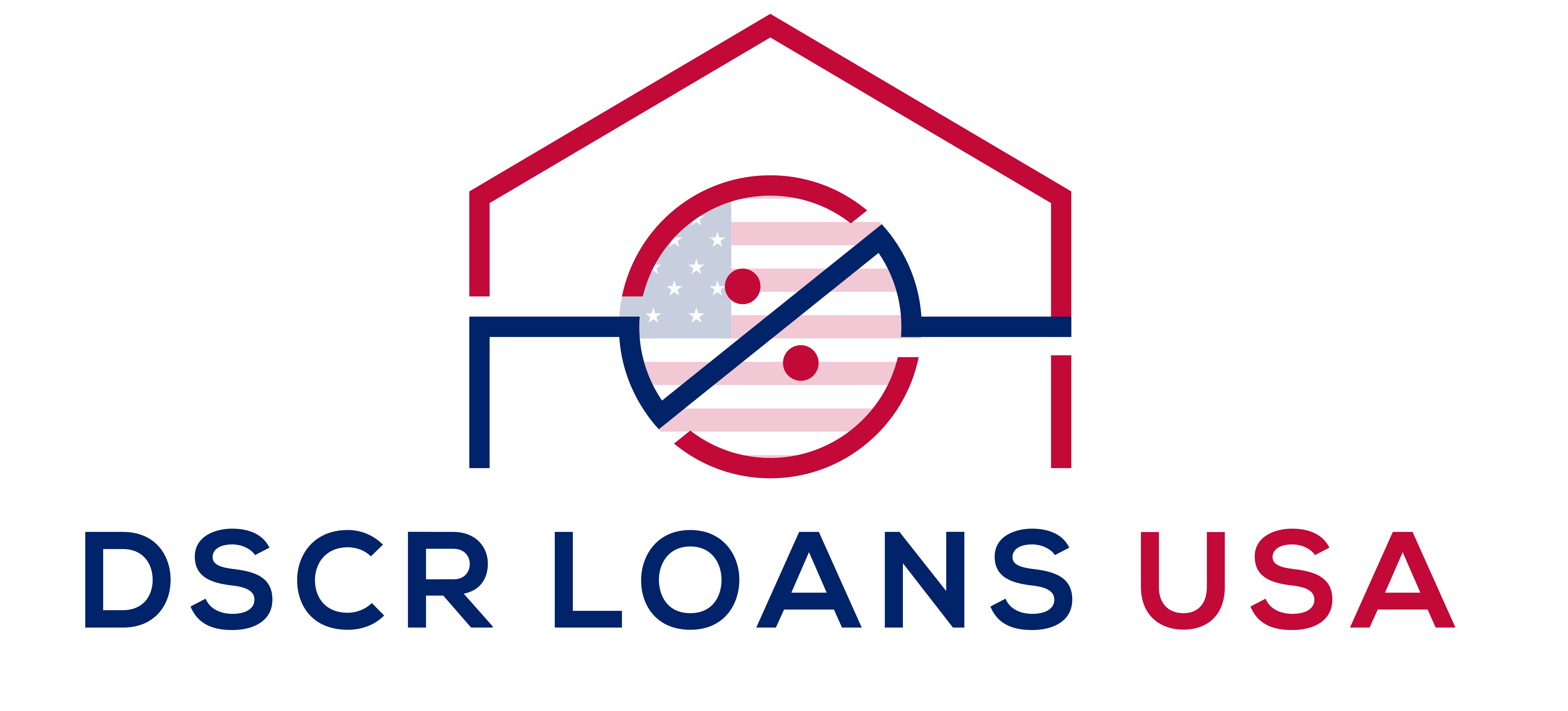

Leave a Reply